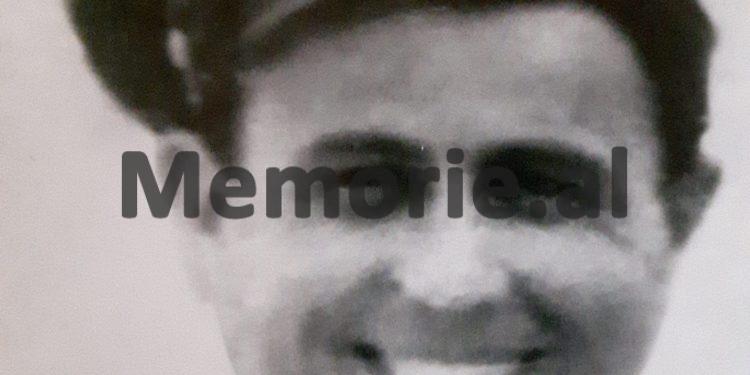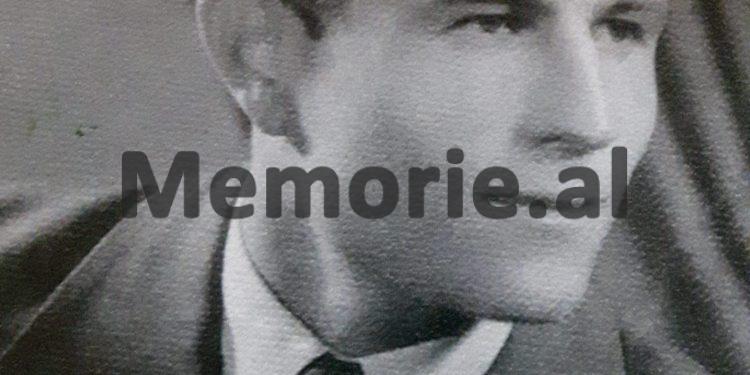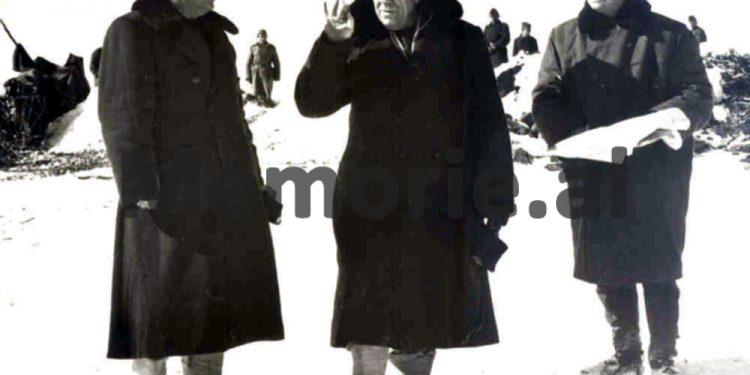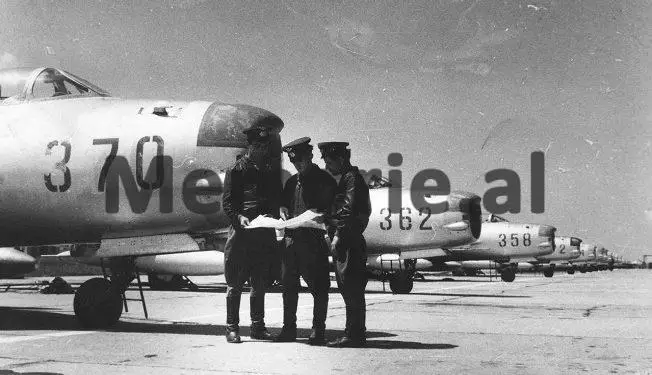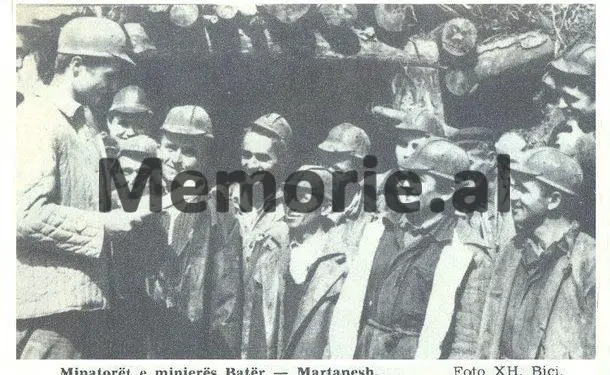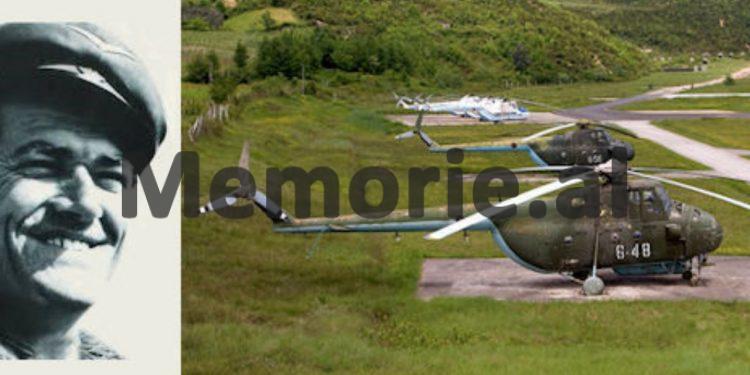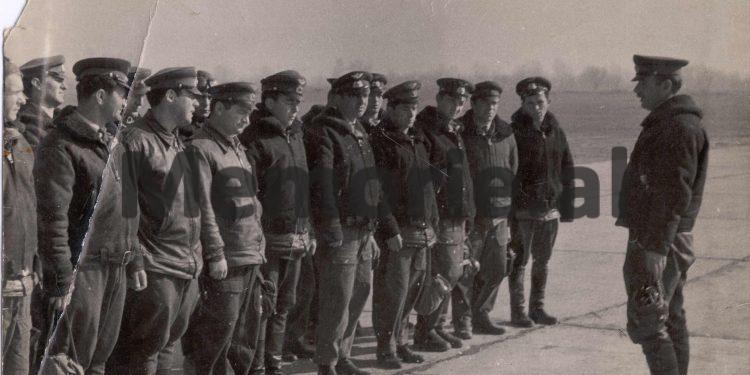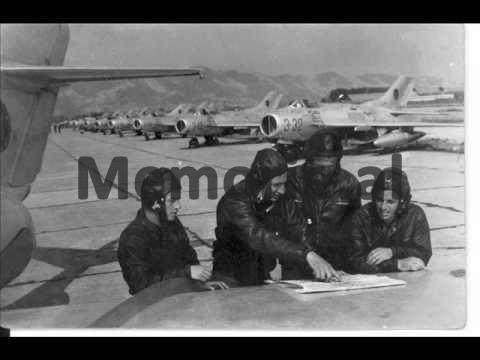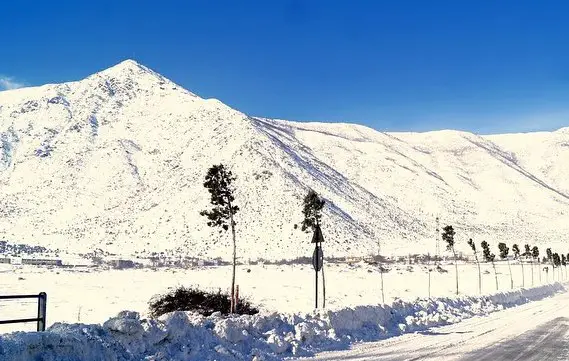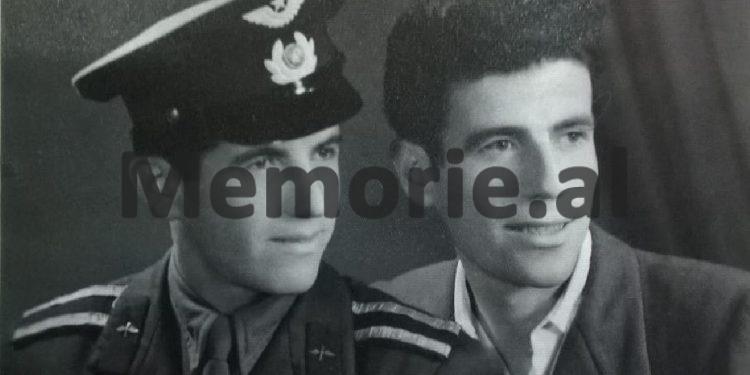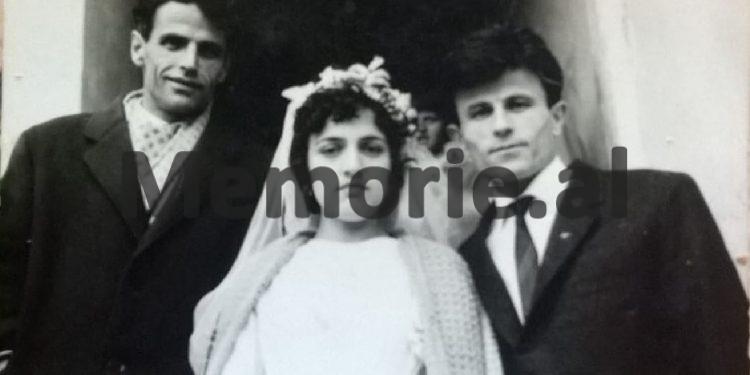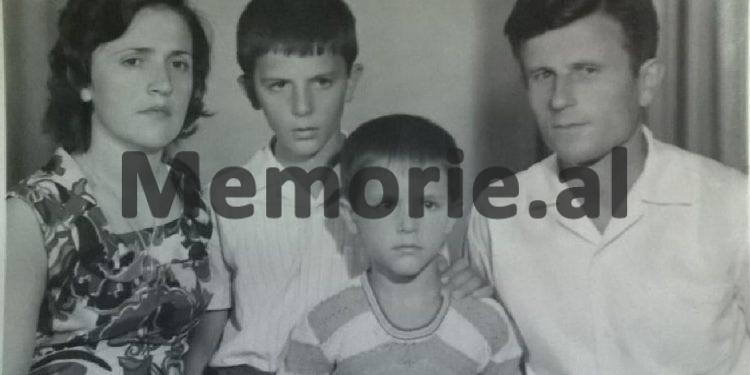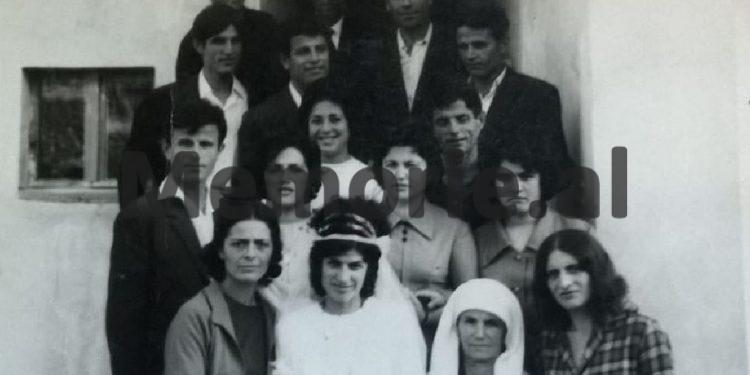Dashnor Kaloçi
Memorie.al publishes some unknown stories told by Burhan Nurja from Shkodra, a former pilot of the Albanian Air Force, a graduate of the former Soviet Union, who during his short career with the aircraft “An-2”, carried out several flight missions transporting some of the main heads of the Ministry of Defense, government ministers and members of the Politburo, such as Beqir Balluku, Ramiz Alia, Myqerem Fuga, Hito Çako, Petrit Dume, Rrahman Parllaku, etc. Nurje’s rare testimony, for the order given by the Aviation Command, that he and his colleague, Llazar Çuçi, land with their plane “An-2” in a field worked with a tractor on the outskirts of the city of Erseka, which was done to brag to Greece that the Albanian Army had strong aviation! And his pledge that they could not help save the lives of 11 geologists of Batra of Martanesh, who on February 11, 1965, remained under avalanches in the area of Batra…?!
Throughout the development of that great military game that took place in Korça and Ersekë, which was otherwise known as the “Army Game”, my colleague Llazar Çuçi and I transported by plane “An-2”, from Tirana to Korça and vice versa, all the highest cadres of the Ministry of Defense and the General Staff of the Army, such as Beqir Ballukun, Petrit Dumen, Hito Çako, Rrahman Parllaku, etc. But on one of those days, more precisely on October 12, 1965, we were ordered to land with our plane in a field newly worked by the tractor, which was located near a military unit inside the town of Erseka, in the place of called “Meteor”. With great difficulty we were able to sit in that well unseen field, undertaking an incredibly dangerous adventure, which could cost us not only our heads, but also the lives of many innocent citizens of Erseka who had come out there to wait for us”. This is how the retired military man, the former pilot of the Albanian Air Force, Burhan Nurja, remembers that very dangerous adventure on the morning of October 12, 1965, when he and one of his colleagues were forced to sit in one of the city areas of Erseka, where some of the highest cadres of the Combat Aviation of the Albanian Army were waiting for him! Who is Burhan Nurja, where did he specialize as an aviator and what were the reasons he was appointed as a member of the crew of the plane transporting the top heads of the Ministry of Defense and members of the Politburo? What are some of the most difficult missions that Nurja had the opportunity to perform during his very short career as a pilot of the transport aircraft “An-2”, and why he was given the unusual order to land on a field in the city of Erseka? For all these and other interesting and unknown events from his military career, we know the interview of Mr. Nurja, exclusively for Memorie.al that we are publishing below in this article.
Mr. Nurja, can you briefly tell us what is the origin of your family and how you came to study for a pilot at a time when this has been a dream for many of your generation?
My origin is from the city of Shkodra, where I was born on January 2, 1937. We were a large family of ten children (nine brothers and a sister), raised by our mother, after our father died early. Based on this fact, my mother was proclaimed by the Presidium of the People’s Assembly of that time with the title:
“Mother Heroine”. The reasons for my entry into aviation have been quite coincidental, but I cannot deny that my family’s past and biography have also influenced this.
Specifically, how…?
This happened in 1957, when I was attending classes in the third year of the Technical School “7 Nëntori” in Tirana. Exactly that year, more precisely on November 27, I was removed from that school and taken to the Aviation School in Lapraka. I studied there until 1958, when we were sent to continue our education in the Soviet Union, in the towns of Pugachev and Batajski. There I studied until 1961, when the relations between the two countries broke down and we were sent back to Albania.
After returning to Albania, how did your career as a pilot continue?
From September 1961 until August 1966, when I left Aviation, I served as a pilot of a Mi-4 helicopter and an An-2 aircraft in the Lapraka squadron. During all this period of almost six years that I served with these helicopters and planes, I had the opportunity to often transport some of the highest leaders of the Ministry of Defense, such as: Beqir Balluku, Petrit Dumen, Hito Çako, Rrahman Parllaku, Sejdi Avdinë etc. Also, I had the opportunity to transport some of the members of the Politburo of ministers, such as Ramiz Alia, Avdyl Këllezi, Myqerem Fuga, etc.
What were the reasons that assigned you to the plane that transported some of the highest personalities of that time, only the biographical ones or…?
In the first place, I say that it was my preparation as a pilot, because during my studies in the Soviet Union I came out with very high results. Also, during various trainings here in Albania, I had shown high preparation. While the biography I do not believe has influenced, as all those who have served as military in Aviation, it was not even a question of having biographical problems.
What were some of the most difficult missions you performed with your plane at the time, where you felt really life-threatening?
The lives of aviators have always been in danger, but I want to recall one of the most difficult cases, that of October 12, 1965, when a large military exercise took place in the districts of Korça and Erseka. Throughout the development of that great military game, which was otherwise known as the “Army Game”, my colleague Llazar Çuçi, I transported by plane “An-2”, from Tirana to Korça and vice versa, all the most senior officials of the Ministry of Defense and the General Staff of the Army, such as Beqir Ballukun, Petrit Dumen, Hito Çako, Rrahman Parllaku, etc. After we transported them and left them there at the small airport in the city of Korça, our colleagues Selman Meçe and Ndue Mëhilli (Logu) took them by helicopter and took them to the training sites.
While transporting them, have you ever been in danger?
No, during their transport we have never had problems, but I was in danger when I was flying alone with my colleague, Lazar Çuçi. This happened, as I said, on October 12, 1965, on one of those days when the “Army Game” took place. That day, at 10 o’clock in the morning, we were ordered to land with our plane in a field newly worked by the tractor, which was located near a military unit inside the city of Erseka, in a place called “Meteori” (at the foot of the mountain). of Gramoz), where the center of synoptics was. This order came to us quite unexpectedly, as until then in such areas you could make forced reductions due to any defect, and never sit down without having any problems, as in our case.
Who gave you the order?
The order was given to us from the ground by the Commander of Aviation, Colonel Edip Ohri, one of the most trained aviators of the Albanian Army, who respected us and we respected him a lot. But such an order given to us at the time, Colonel Edip Ohri (for whom I have the deepest respect), who was where we would sit, could never have given it in his head, as the consequences were known that we could have. He, too, had orders from his superiors, that is, from the staff of the General Staff, who were conducting that great exercise at that time.
How did you act after receiving the order?
Immediately we started the right actions to make the landing, giving and taking with each other. But for one thing we were sure, that Colonel Edip Ohri never made mistakes. During the landing we used the braking system, so that the plane did not go off the field of no more than 60-70 meters, where in addition to falling into a deep canal that was there, we could also collide with many residents of Erseka who had come out there as curious. Thus, with great difficulty we were able to sit in that field which had been worked only the night before by the tractor, undertaking upon itself a very dangerous adventure, which could cost us not only our head, but also the life of many the innocent citizens of Erseka who had come out there to wait for us. When we landed, due to fatigue, excitement and stress, we were a few minutes late to get out of the cabin.
How were you received when you fell to the ground?
There they welcomed us as heroes. The people applauded us and Commander Edip Ohrid with other Aviation cadres congratulated us for the landing we made. It was called a great success and, in the afternoon, we were welcomed and congratulated by Minister Beqir Balluku and other members of the General Staff. That same day we were asked to take a walk in the air for a group of distinguished pioneers and women, which we did successfully.
Why do you think they gave you that order to sit in that newly employed field, where you could risk your life?
My opinion is this: At that time our country had just severed relations with the Soviet Union and with that action, that is, with the landing of the plane there in that area of Erseka, it was told to the Greeks (who were watching us from Mount Gramoz) that we we also had an airport there. So, everything was done just for this purpose, to show them that we were militarily powerful even from the air.
Which one did you transport from the Politburo by your plane and did you have any problems?
In addition to Beqir Balluku, whom I transported several times, together with my colleague, Irakli Grazhdani, from the Politburo I had the opportunity to transport Ramiz Alia and Avdyl Këllezi, Minister Myqerem Fuga and some others that I do not remember. We transported all of them from Tirana to different cities, where they had different plenums and meetings, and we brought them back to Tirana. We transported Ramiz Alia in 1965 to Vlora and from there we brought him back to Tirana. For clarification I tell you that I have always been a co-pilot and I have worked mainly with Lazar Çuçi and Irakli Grazhdani.
Have you ever had problems transporting senior management staff?
We only had it once in 1965 with Beqir Balluku, whom we took to Shkodra and we could not lower it, due to the bad foggy weather, which did not leave any visible. After that we were forced and returned to Tirana with the Minister, Beqir Balluku, who was the only one who met us and congratulated us when he came down to earth.
Why did you leave your military career as a pilot?
I was forced to leave after I was asked to work for Security and, when I refused, I was found incompetent during the annual health checks for pilots. This was a well-known method of removing unwanted people from Aviation.
Where did you work next?
After 1966, when I was fired as a pilot, I worked as a mechanic in the Cigarette Factory and continued the branch of Mechanical Engineering that opened in Shkodra. After graduating as an engineer on October 1, 1968, I started as a lecturer of technical subjects at the Industrial High School in Shkodra, where I worked until 1992.
Nurje’s story about the failed mission in the Martanesh mine
“Why we could not save the 11 geologists of Batra in 1965”
During his short career in the ranks of Combat Aviation, in addition to military duties, former pilot Burhan Nurja has often performed other flight missions for various problems, such as those of civil emergencies. One of those flight missions was that of 1965, when Nurja and his colleague, Lazar Çuçi, received orders to leave urgently with their plane to the deep area of Batra e Martaneshit, where they had remained under the avalanches. of heavy snow, full of 11 geologists of that mine. In this regard, Nurja recalls: “I remember as now that moment on the afternoon of February 11, 1965, when our command gave us orders to prepare to leave urgently in the direction of the Batra area of Martanesh, where we would throw a package that we did not know what was inside. It was very bad weather that day and we were informed by the comrades of the command that a large avalanche had fallen in Martanesh, which had occupied several geologists. Together with the comrades of the command, that afternoon at the small airport of Lapraka where our unit was located, some representatives of Geology had come, who showed us the coordinates and the exact place where we would throw the package they had ordered. After we got ready and arranged in our plane “An-2” the package that we would transport, we immediately got on the flight and took the course to the province of Martanesh, where the Chrome and Batra mine was located. When we arrived at the place assigned to us to drop the package, we lost control of the plane and had a hard time navigating, as it was a very bad time and the fog would not leave a view. After many difficulties we left the package at the appointed place and, being convinced that we had performed the task assigned to us, we immediately took the road back to Tirana, where our command comrades were waiting for us. When we returned to the ward, we learned that in the package we had thrown there in the Batra e Martanesh mountains, there was a transceiver radio, which geologists would need to communicate with rescue brigades who were still searching for them. through the snow. But unfortunately, that radio we had thrown there was never found by them. We learned this the next day, when it was publicly announced by Radio Tirana, which broadcast the government communiqué announcing the tragic death of 11 geologists in Batër of Martanesh, who had occupied the avalanches. After a few days they were declared “Heroes of Socialist Labor” and since then the Batra mine has taken their name and is called the mine “11 Heroes”. / Memorie.al




